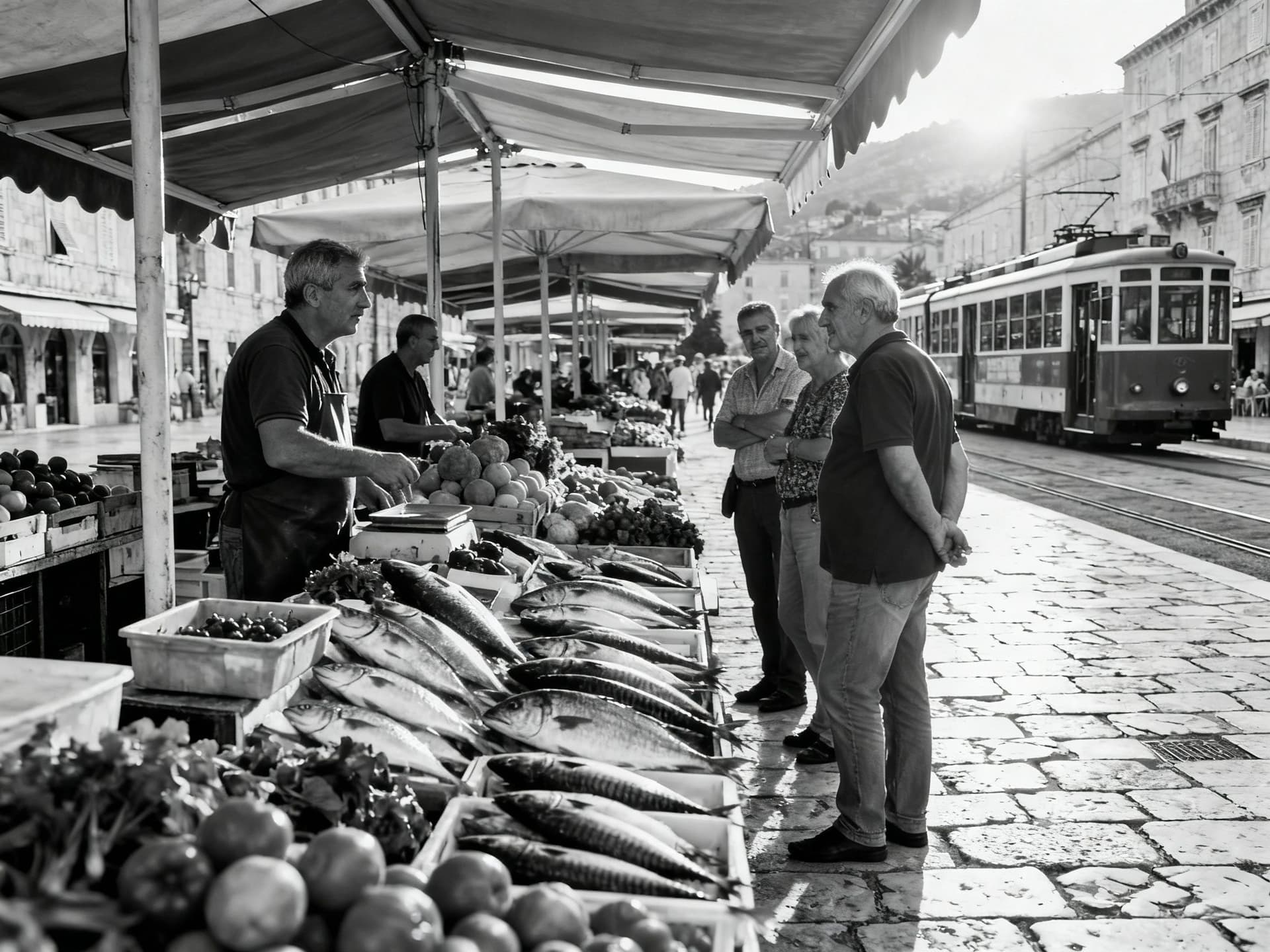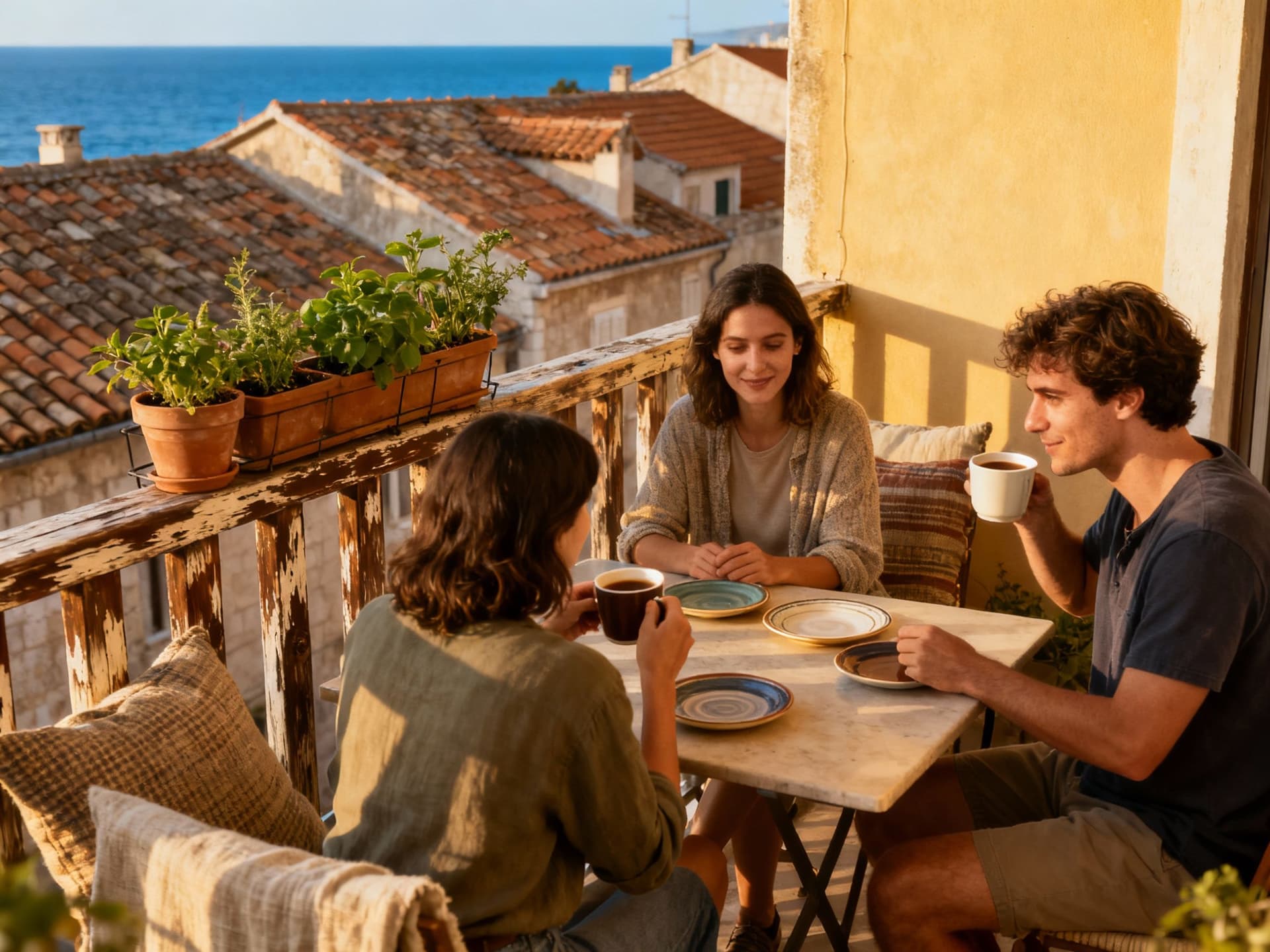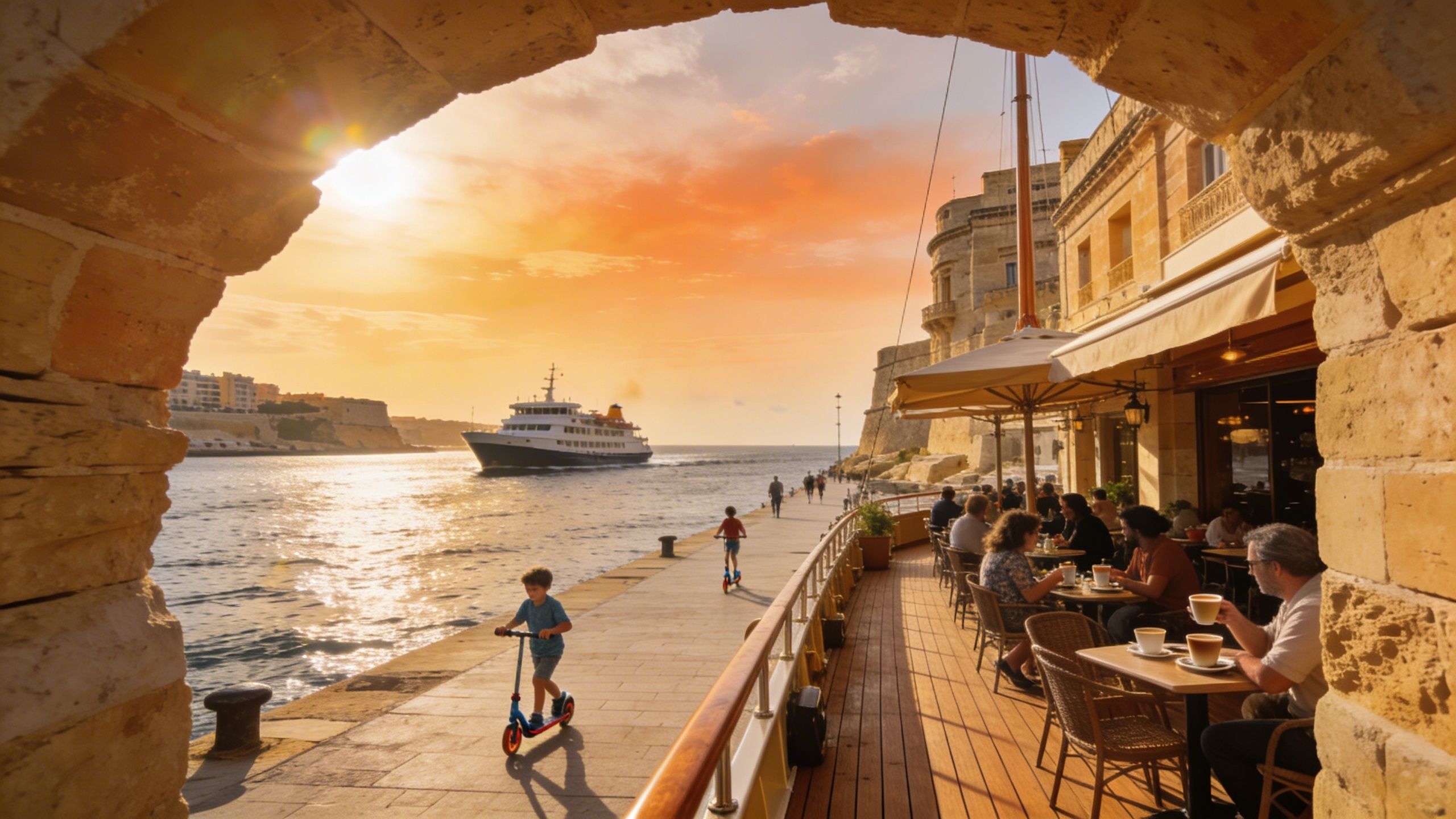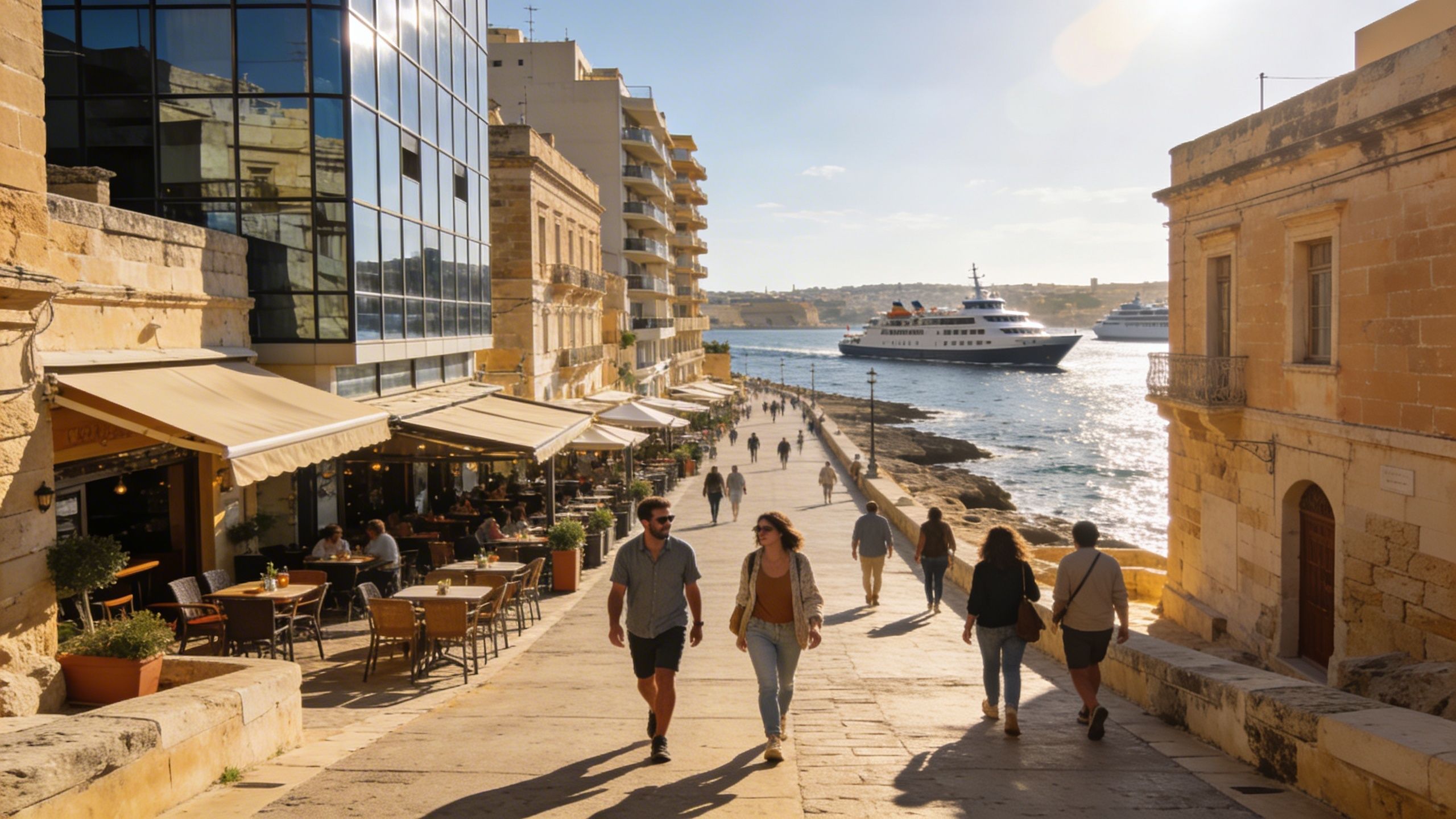The 'No Golden Visa' Advantage: Buying in Croatia with Eyes Open
Croatia offers vivid coastal life but no automatic 'golden visa'; reciprocity, transfer‑tax vs VAT and a new municipal property tax change the investment math.
Imagine stepping out from a stone-paved morning square in Split, espresso in hand, then choosing between a restored Dalmatian townhouse and a modern apartment with a view of the Adriatic. Croatia gives you small-city rhythms, island summers and quiet winters — but the legal and tax rules that surround that everyday beauty matter. This guide looks at the lived reality first — cafés, markets, beaches — then explains the regulatory choices that will determine whether that lifestyle is secure or expensive in ways you don’t expect.
Living Croatia: daily life, seasons and places that feel like home

Croatia’s tempo changes by street and season. Zagreb’s Donji Grad hums on weekdays with tram routes, boutique cafés on Radićeva and design shops near Tkalčićeva; Split’s Riva and the alleyways around Diocletian’s Palace become the living room in summer; Rovinj and Pula in Istria pull a quieter, food-focused year-round crowd. For buyers that matters: the property you choose will dictate the life you wake into — morning markets, ferry schedules, neighbourhood cafés and the winter silence when islands empty.
Zagreb, Split and Dubrovnik — three different everydays
In Zagreb you buy access to full services, year-round culture and a local market not reliant on tourism. Split and Dubrovnik sell coastline and summer intensity: restaurants, charter boats and high short‑term rental demand. Istria (Rovinj, Poreč) leans toward food, truffles and long-season living. Each choice changes tax exposure, renovation rules and rental potential — the lifestyle draws you first, the law shapes what you can actually do with the home.
Hidden local scenes that matter to buyers
Morning markets (Dolac, Split fish market), neighborhood cafés (Tkalčićeva, Bačvice promenade), island bakeries (Hvar town) and small municipal libraries that host English clubs — these are where community forms. If you want a neighbourhood that works off‑season, look for places with year‑round services (a post office, medical clinic, a bakery open outside July–August).
Street-level highlights: Dolac Market (Zagreb), Riva promenade (Split), Lapad Bay (Dubrovnik), Pjaca (Šibenik) and Rovinj harbour — each spot signals a distinct daily life and corresponding property demand.
Practical: the regulatory landscape that shapes your purchase

The headline that surprises many: Croatia does not offer a universal golden‑visa-for-property route. EU citizens can buy freely; non‑EU buyers face an approval system based on reciprocity and Ministry consent. That consent can take months and — critically — the contract can be null until approval is granted. For Americans, Canadians and other nationals, reciprocity often exists but the paperwork and timelines still influence negotiation strategy and closing schedules.
Who can buy what — quick legal distinctions
EU citizens enjoy parity with Croatian nationals under the Ownership Act. Non‑EU nationals need Ministry approval unless they buy through a Croatian company or the country of their citizenship is listed for reciprocity. Agricultural land and certain protected zones carry extra limits. Practically, many non‑EU buyers form a local company to simplify transactions, but that step has tax and administrative consequences you must plan for.
Tax realities that change holding costs
Since 2024–25 Croatia has signalled a shift toward taxing property holders to free up housing supply. Resale purchases normally attract a 3% transfer tax; new developments sold by developers are typically subject to 25% VAT instead. A new municipal property tax (introduced 2025) applies per square metre in many places, with exemptions for long‑term rental. Those changes alter the math for buy‑to‑let and second‑home scenarios.
Key transactional issues to confirm before you bid:
1) Whether the seller is a company (VAT) or an individual (3% transfer tax).
2) If you are a non‑EU buyer: is reciprocity confirmed and will Ministry approval be required?
3) Local municipal property tax rates and exemptions, particularly rules for long‑term rentals.
Insider knowledge: common mistakes and contrarian moves that pay off
Buyers often assume that coastal = liquidity and instant rental returns. That’s not always true outside high-season. A contrarian and frequently rewarding move is to prioritise towns with year‑round populations and local services — Šibenik, Varaždin, small pockets of Istria — where rental seasonality is milder and community life sustains resale values. Equally, don’t overpay for 'sea view' premiums on islands where ferry disruptions and maintenance costs erode returns.
What expats wish they’d known
Owning property does not automatically give long‑term residency or work rights. Non‑EU owners can apply for temporary residence on ‘other grounds,’ but the permit is limited and not an automatic path to permanent residency. Expats who plan to live in Croatia full time typically combine property purchase with registered business activity, work permits, or family‑based residence routes.
Practical due‑diligence steps that protect the lifestyle you bought
1) Obtain an OIB (tax number) early so you can open a bank account and register contracts. 2) Commission a local lawyer to check land registry encumbrances and zoning; confirm whether island or protected‑zone pre‑emption applies. 3) Confirm VAT vs transfer‑tax status with the seller to model closing costs accurately. 4) Ask the municipality about property‑tax rates and exemptions for long‑term rental.
Each step protects the life you expect to live there: easy ferry access, a bakery open in winter, a quiet street in January — these are the small things that legal checks secure.
Working with local experts: who to hire and why it matters
Lawyers and translators: not optional
Hire a lawyer experienced in Ministry approvals and a translator for official documents. Contracts in Croatia must be registered and often require certified translations; small errors in documentation can delay Ministry consent or tax registration. A lawyer also checks municipal planning, whether the building has occupancy permits and whether there are hidden pre‑emption rights.
Real estate agents and local agencies: pick depth over charm
Choose agencies that: have proven local sales records, explain VAT vs transfer tax on listings, assist with company formation if needed, and maintain relationships with municipal offices. They are your reality check between a romantic listing and the permitting reality.
When an agent shows you a shore‑front terrace, ask about winter access, water supply, and whether seasonal rental rules or new municipal taxes will affect net income. Agencies that operate across seasons and municipalities offer better risk assessment.
Conclusion: fall in love, then confirm the frame around the picture
Croatia offers daily-life pleasures — harbourside cafés, island escapes, late-night promenades — but the country's legal and tax architecture decides whether those pleasures remain affordable. Treat lifestyle first and regulation second: let neighbourhoods and seasons shape your wish list, then verify reciprocity, tax exposure and municipal rules before signing. Work with local lawyers and agencies who translate romance into durable ownership. If you want, we can outline the checklist tailored to your nationality and the exact municipality you’re considering.
Swedish expat who moved from Stockholm to Marbella in 2018. Specializes in cross-border legal navigation and residency considerations for Scandinavian buyers.


